Skin Concerns
- Home
- Skin Concerns
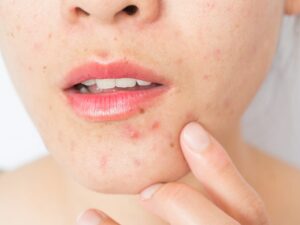
Acne is a common skin condition that happens when hair follicles under the skin become clogged. Oil and dead skin cells plug the pores, and outbreaks of lesions (often called pimples or zits) can happen. Most often, the outbreaks occur on the face but can also appear on the back, chest, and shoulders. For most people, acne tends to go away by the time they reach their thirties, but some people in their forties and fifties continue to have this skin problem.
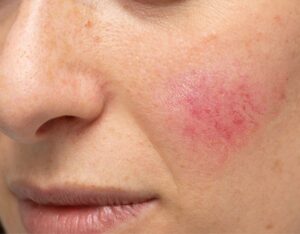
Rosacea is a common skin condition that causes blushing or flushing and visible blood vessels in your face. It may also produce small, pus-filled bumps. These signs and symptoms may flare up for weeks to months and then go away for a while.
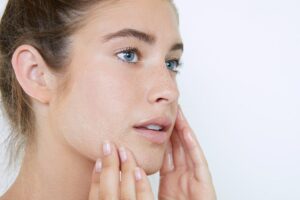
Sensitive skin is a common issue but not a medical diagnosis by itself. The term generally refers to skin that is more prone to inflammation. The cause of the inflammation may differ for each person. People with generally sensitive skin have local reactions to chemicals, dyes, and fragrances present in products that come into contact with their skin. They may also get rashes or irritation from clothing or friction. Some people are allergic to certain substances and may react on their skin. Sensitive skin may also be a symptom of an underlying condition. Finding ways to avoid potential triggers and soothe irritated skin may help people with sensitive skin find relief and improve their quality of life.
 Dry skin is an uncomfortable condition marked by scaling, itching, and cracking. It can occur for a variety of reasons. You might have naturally dry skin. But even if your skin tends to be oily, you can develop dry skin from time to time. Dry skin can affect any part of your body. It commonly affects hands, arms, and legs. In many cases, lifestyle changes and over-the-counter moisturizers may be all you need to treat it
Dry skin is an uncomfortable condition marked by scaling, itching, and cracking. It can occur for a variety of reasons. You might have naturally dry skin. But even if your skin tends to be oily, you can develop dry skin from time to time. Dry skin can affect any part of your body. It commonly affects hands, arms, and legs. In many cases, lifestyle changes and over-the-counter moisturizers may be all you need to treat it
 With aging, the outer skin layer (epidermis) thins, even though the number of cell layers remains unchanged. The number of pigment-containing cells (melanocytes) decreases. The remaining melanocytes increase in size. Aging skin looks thinner, paler, and clear (translucent).
With aging, the outer skin layer (epidermis) thins, even though the number of cell layers remains unchanged. The number of pigment-containing cells (melanocytes) decreases. The remaining melanocytes increase in size. Aging skin looks thinner, paler, and clear (translucent).
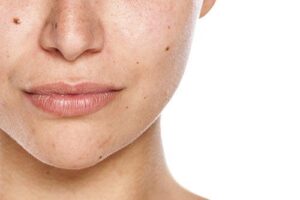 Skin pigmentation disorders affect the color of your skin. Your skin gets its color from a pigment called melanin. Special cells in the skin make melanin. When these cells become damaged or unhealthy, it affects melanin production.
Skin pigmentation disorders affect the color of your skin. Your skin gets its color from a pigment called melanin. Special cells in the skin make melanin. When these cells become damaged or unhealthy, it affects melanin production.
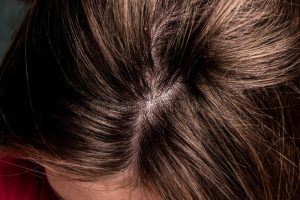 Hair loss, also called alopecia, can occur on any part of the body. Hair loss that occurs on the scalp is generally called baldness. Hair loss is often of great concern to people for cosmetic reasons, but it can also be a sign of a bodywide (systemic) disorder.
Hair loss, also called alopecia, can occur on any part of the body. Hair loss that occurs on the scalp is generally called baldness. Hair loss is often of great concern to people for cosmetic reasons, but it can also be a sign of a bodywide (systemic) disorder.


